Getting Wealthy Bums On Expensive Seats
West End Producers need to make money but high ticket prices risk reducing the range of stories told and making the art form irrelevant.
Thank you for reading the JasonWard Creative Substack and a huge Thank You to everyone who has subscribed - your support is much appreciated. There are now over 70 articles, podcasts and playlists for you to enjoy filled with creative insights, interviews with creatives and reviews of theatre, dance and TV. If you have not yet subscribed it would be great to welcome you to the ever growing group of subscribers who are supporting my work. Subscription is currently free of charge by clicking this button;
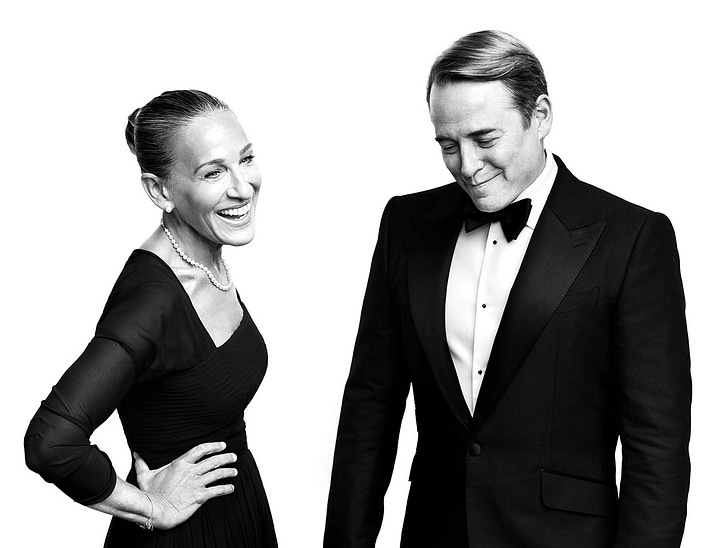
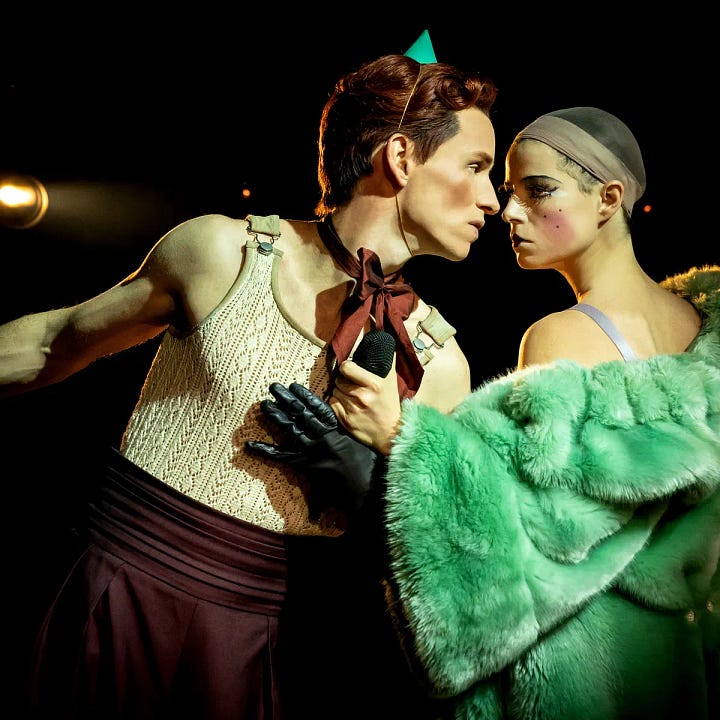
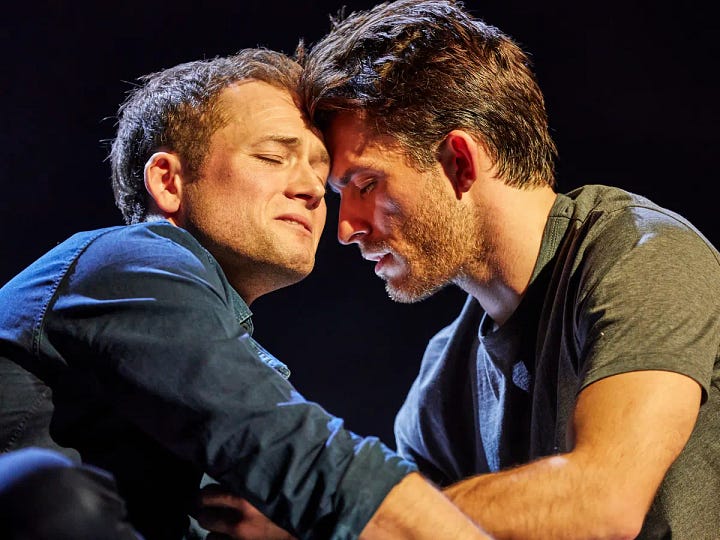

Being a theatre producer is hard work. Just like any business there are a myriad of moving parts to manage, budget and organise all while you form a bridge between the creative and commercial parts of a production. And after all the hard work, sleepless nights and scrambling around to get funding, negotiate door splits and ensure that your show is on everyone’s Insta it seems that you get insulted if you turn a profit on the enterprise and God forbid you should become wealthy.
The theatre industry is fickle like that. We cry and moan that creatives, performers and technicians don’t get paid properly but then expect anyone who is making half decent money to ‘give back’ or accept less in order to help others. This is a wonderful sentiment and all of us have worked for free (AAAH!) because we thought it might help our careers or because we want to help others. People in banking don’t work for free and try asking your plumber to come round and fix your toilet in exchange for posts on your Instagram which will be “so good for your profile”!
Theatre, like most Guest Service industries, has different sectors that are accessible at different price points. Generally, the West End is seen as the Premium sector where the shows are more expensively produced and feature cast, creative and technical teams that are leaders in their fields. Tickets for West End shows are more expensive to buy because of the perceived value of ‘being in the West End’ and also because of the greater costs (and risks) associated with producing in London - and the same goes for New York. If we are being honest, theatre producers like any other business people will charge the maximum they believe the market will allow which is absolutely commercially correct.
All of this is sound business practise and helps to ensure that money is continually available to finance theatre which provides work for performers, creatives, technicians and a whole load of other people. It also provides a greater benefit for society. In a psychological study carried out by Steven Rathje at Trinity College, Cambridge and reported in Journal of Experimental Social Psychology, scientists discovered that watching live theatre makes people more empathetic. And it is this social value that live theatre brings that leads us into discussions and controversy around how much theatre tickets should cost.
Other premium experiences do not drive empathy, social cohesion or encourage better understanding of other viewpoints in the same way as theatre. If you stay in a hotel suite for £83k a night, fly by private jet or eat gold plated steak you are not empathetic - you are just very rich! Other sectors accept premium more readily than live theatre. When Maserati produced the new MC20 Cielo that goes from 0-60mph in 3 seconds, costs a minimum £192k and will give you 15 miles to the gallon there were no complaints from car drivers, mechanics and autoworker. So why do Premium theatre experiences and pricing anger the theatre community so much?
Part of this is because theatre and storytelling are intrinsic parts of being human. We evolved through being able to communicate clearly. First, to pass on experience and lessons - which animal is dangerous or this is how you make fire. This storytelling developed so that the most effective story tellers could recount information and tell tales in a way that made other people listen and that ability became a valuable commodity. We have all experienced inspirational people who have told us things in a way that made us think more about the subject or be inspired to act on it. Humans hunger for story telling and this is a big responsibility for theatre makers.
The other part of the anger extends from a primal human need for storytelling which could be removed as theatre continues to become more elitist. West End theatre is elitist in the sense that it is a representation of the ‘best of the best’ There are some incredible talents working in the West End who are undoubtedly in the top 1% of what they do. But the fear among theatre goers is that only the top 1% of earners will be able to enjoy these talents which gives the impression to the rest of us that the ‘best’ theatre and, by extension, the best storytelling is not for us. It is almost like a lizard brain version of FOMO!
Producers have a part to play in this confusion and anger. They are right to charge high prices for incredible experiences and in London it appears that the demand is strong even at immensely high prices. This is true across most Premium services and I remember from the cruise industry that the £20k a week suites would sell out literally years before any other accommodation. But with higher prices reducing your available audience the risk is that you are selling to an ever narrowing band of customers. As theatre grandee Sir Derek Jacobi recently put it “I don’t know the basics of how a theatre survives without money but it certainly can’t survive without bums on seats either … And if the money is prohibitive to bums on seats then we’re up shit creek without a paddle.” Essentially - the more you charge, the less people will come and see theatre, and the less people that come and see theatre, the less important it becomes in society. And when something is no longer important to society ….
Just this month booking opened for Plaza Suite. This is a 55 year old play by Neil Simon that will run at The Savoy theatre and feature the dream pairing of Matthew Broderick and Sarah Jessica Parker. This is big star wattage and the Producers have priced the show accordingly with top price tickets at £395 per person. In fairness this is described as a package that includes access to the Ambassador Room, half a bottle of champagne, a programme and a free ice cream but does not include a £3.80 per ticket booking fee - Seriously?!
£395 is a lot of money to see an old and old fashioned play but I can understand why some theatre fans would pay that much to see these two huge stars on stage. And I would ask if it is any different to paying a similar amount to see Taylor Swift? But if we go back to Derek Jacobi’s point about bums on seats, we see how producers are narrowing the range of their audience by fishing from an ever reducing pool of people with £1000 to spend on a night out.
When you reduce your audience you also restrict what you can offer. In theatre this means that you restrict what stories you can tell and when you restrict what stories you can tell your future product pipeline stagnates and you become irrelevant.
In 2017 retail expert Andrew Jennings wrote a brilliant book called Almost Is Not Good Enough In it he examined his career leading high end retailers from London to New York. He talks about taking over Selfridges and a chat he had with his mother about the store. At the time his mother was in her 60s and said that she and her friends loved Selfridges and went there regularly. His mother and her friends spent good money in the shop but Jennings recounts thinking that if Selfridges was a natural place for wealthy 60 year olds today then its future would be restricted because, in his opinion, wealthy 60 year olds are not a growing market. This has direct parallels with high ticket price West End shows.
The Society of London Theatres says that the average West End ticket price is £52.17 which includes discounted, lottery and restricted view seats. This is a long way off the £395 for Plaza Suite, the £400 charged for the play Cock ( cue lots of jokes from people saying they would never pay £400 to see Cock! ) and the stage tables at Cabaret for £350 each. Each of these shows featured big star names on stage who were appearing for a limited time which drove demand and enabled Producers to recoup. But the point remains that you have to be very certain about what you are going to see or very wealthy to risk that amount of money on a night out.
Going to see a show in the West End is a special experience for 98% of theatre goers. It is a treat that they save for and look forward to. It is a day out or weekend away that carries expectations of enjoying great things, of wonderful story telling and incredible talent. In a time of ever more difficult economic circumstances a trip to the West End will carry even more expectation and will need to provide more value than ever, so offering a chance to spend time with a star would seem to provide the perfect solution. Except who is Plaza Suite really speaking to? Sure, it features two big movie stars who you can share a space with for the £395 top price but right now in the same theatre the incredible Nicole Scherzinger is starring in a much more creative reimagining of the musical Sunset Boulevard (and will be covered by the wonderful Rachel Tucker) with a top price of £195. But if you fancy the beautiful Theatre Royal in Bath you can get a front row seat to Voyage Around My Father with bona fide movie star Rupert Everett for £50 - but you will need to buy your own ice cream! So its is £50 for one movie star in Bath (without ice cream) and £395 for two (with ice cream and bubbly) Which does open up the question of Plaza Suite and other shows being overpriced.
The problem is that West End theatre is both commercial and elitist. It needs the mass appeal of Ford but with the pricing of Maserati. Star names will certainly help in the short term and there will be new audiences attracted to the theatre by Nicole Scherzinger in Sunset Boulevard and Jake Shears from the Scissor Sisters taking over in Cabaret. But what legacy does Plaza Suite leave? We will always pay higher prices to enjoy the greatest storytellers BUT if less people get to hear those stories then their value diminishes. We should be talking about emotions not expenses.
Hal Prince always maintained that the show should be the star and he knew a thing or two about producing and directing profitable, creative hit shows.
Thank you for reading this week’s article on the Jason Ward Creative Substack. To receive weekly articles, podcasts and playlists and to support my work you can subscribe free of charge to the Jason Ward Creative Substack and join and every growing group of like minded creative people. If you would like support with your creative project or practise please just drop me a line. Thank you - Jason
To find out more about Sunset Boulevard with Nicole Scherzinger click here:
https://sunsetboulevardwestend.com
To find out more about Plaza Suite with Matthew Broderick and Sarah Jessica Parker click here:
To find out more about Cabaret at the Kit Kat Club with Jake Shears click here:
https://kitkat.club/cabaret-london/
To find out more about A Voyage Around My Father with Rupert Everett click here:
https://www.theatreroyal.org.uk/events/a-voyage-round-my-father/





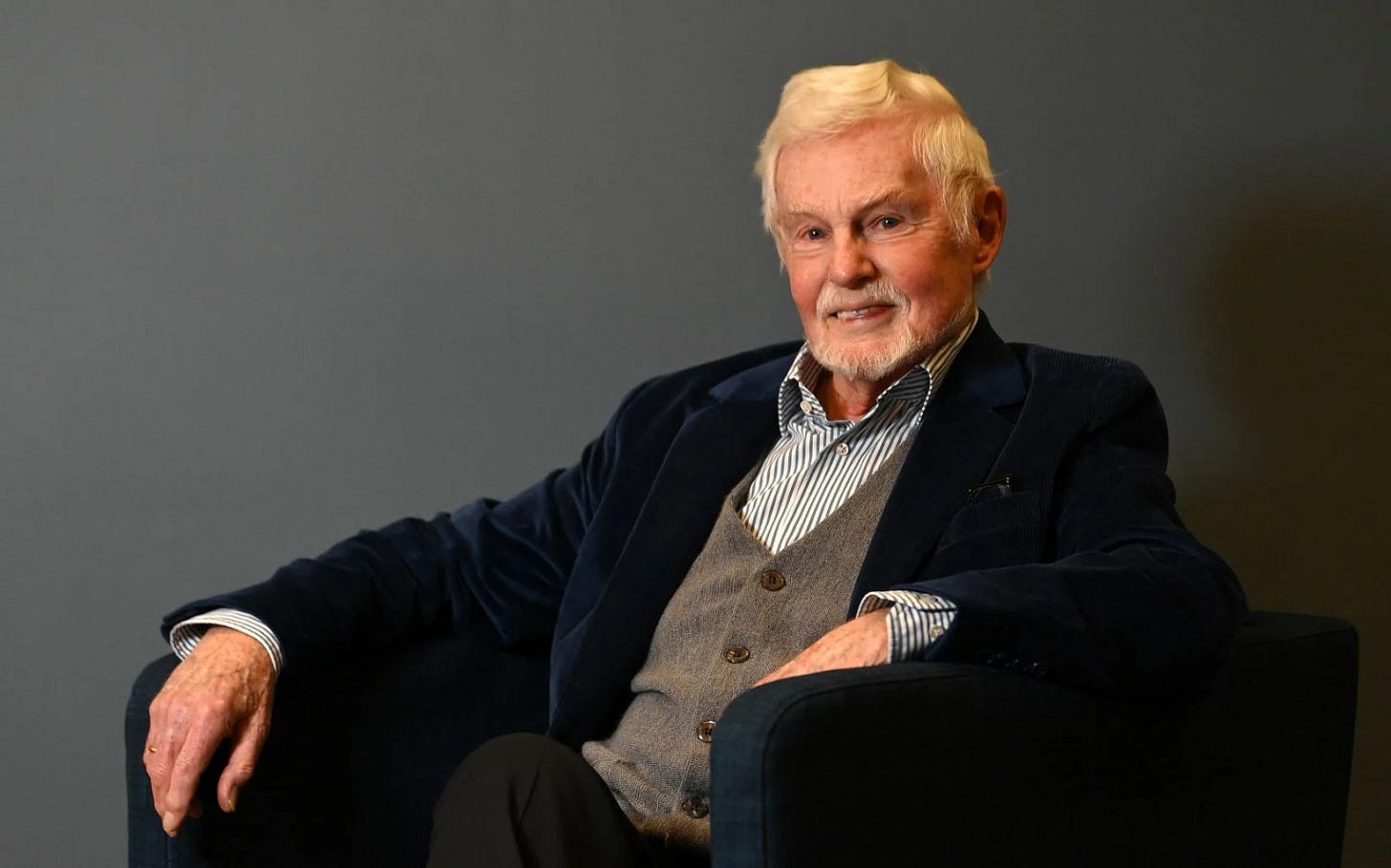
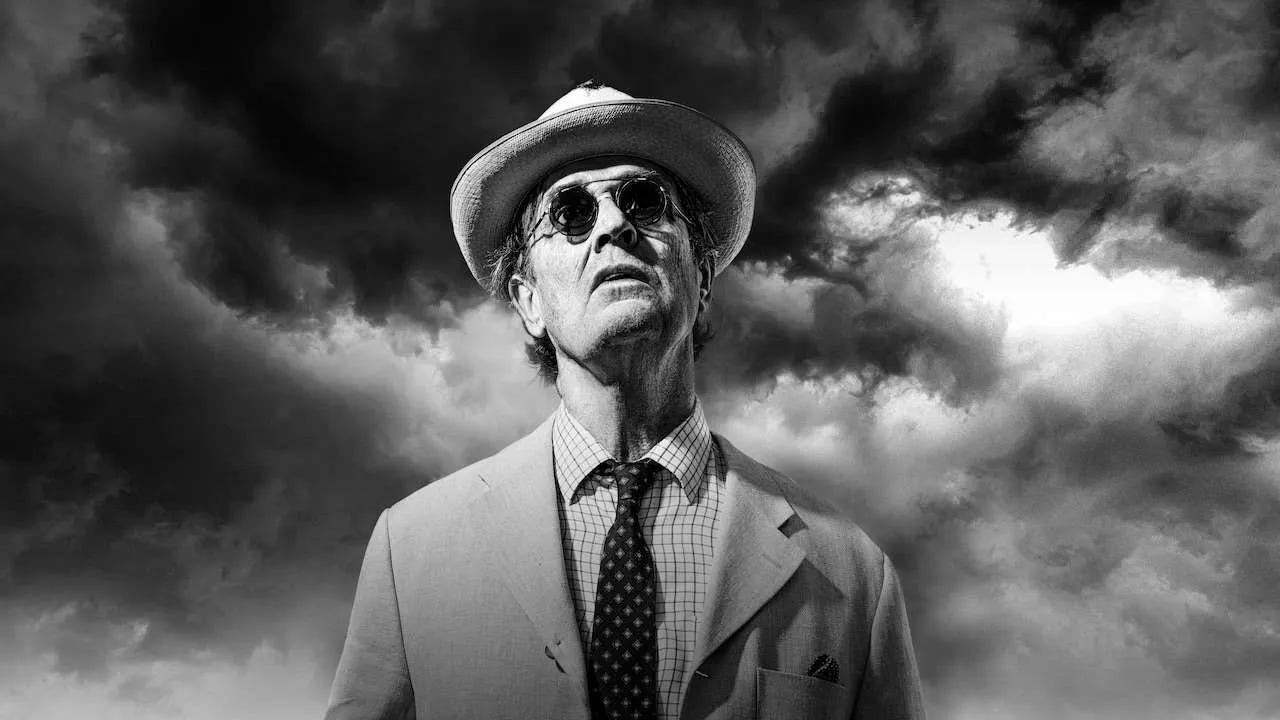
This is such an interesting and important article. Strangely enough the last time I was at a West End theatre was in 2019 when we went to see M Broderick in "The Starry Messenger". We bought our tickets from the TKTS kiosk in Leicester Square and we paid £32.50 each, and for decent seats. So it is interesting that allowing for inflation, a glamorous co-star, a witty play (I'm thinking Burton and Taylor in Private Lives) some champers and ice cream (??), theatres feel they can shift tickets at this crazy price. Even if theatre goers can afford it, it's a question of whether folks want to pay that for a night out (and those booking fees...).